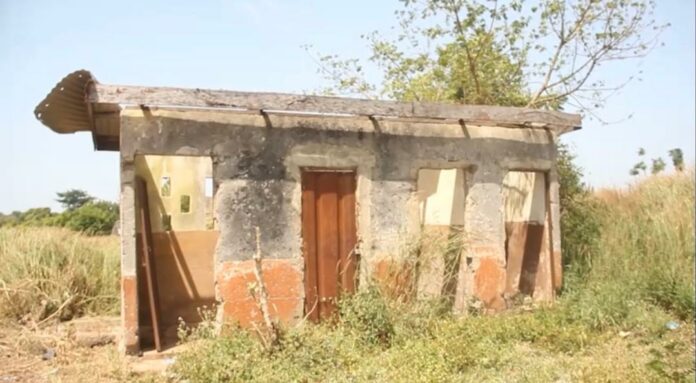The provision of Water, Sanitation and Hygiene (WASH) facilities in schools are necessary for ensuring the adoption and maintenance of safe environmental sanitation and hygiene conditions especially for girls, to avert the spread of infections and enhance students’ wellbeing.
Availability of water and decent toilet facilities are basic facilities that ensure conducive learning environment for students.

It is very common to see senior high students roaming with gallons popularly known as ‘Kuffour jerrycan’ in search of water.
An assessment conducted by the Northern Regional Interagency Coordination Committee on Sanitation (RICCS) revealed that 72 percent of Senior High Schools in the region do not have adequate and hygienic latrines for both students and staff.
The situation has portrayed an unofficial institutionalization of open defecation, which defeats the government’s objective to eliminate the practice by the year 2030.

Intervention by Rotary Club
Despite efforts by government and its partners in addressing the challenge, the situation still persists.
In an effort to support the improvement of WASH in Senior High Schools, Rotary International through Rotarian Alfreda A. Eghan of the Rotary Club of San Jose, California and Rotary Club of Wa, have constructed some WASH facilities for girls at Bole Senior High School and Kurabaso Basic School in the Savannah Region.
Speaking at a short ceremony to handover some WASH and other facilities to the Bole Senior High School and Kurabaso Primary and JHS, Rotarian Alfreda Eghan, sje encouraged parents to prioritize education.
“Today, we hand over 32 Bio-Digester Toilet Seats and 32 Stall Washrooms for Girls of Bole SHS, four mechanized boreholes, Four replaced Leaking Water Tanks for Bole SHS.”

“At the Kurabaso Primary and JHS, we renovated Primary One to Three Classroom Block, 180 New Tables and Chairs for Students, 4 Bio-Digester Toilets and Urinals, Staff Common Room and One Borehole for Water Supply,” she added.
She noted that the provision of education facilities is key in ensuring education outcomes.
“These children need a more conducive environment to enhance their education and I believe that this support will go a long way to improving their learning outcomes,” Mrs Eghan said.

Free SHS and WASH
The implementation of Free Senior High School policy by government in 2017, led to an increase in the number of students accessing Water, Sanitation and hygiene facilities across the country.
The trend has put more pressure on the already overstretched WASH facilities at Senior High Schools.
“We used to bath and defecate in the open which was against our dignity as women and poses a security threat. But today thanks to Rotary club and madam Alfreda Eghan, our dignity will be restored” one of the students noted.
Assistant Headmaster of Bole Senior High School Vitus Beyouh commended Rotary Club of San Jose and for their support.
He gave an assurance that the facility will be put to good use
“We know government cannot do it alone and this is why we are most grateful for this project, and we promise to put it to good use”
“I wish to appeal to old students of this noble institution and other benevolent individuals and organizations to emulate the great work of Rotary Club,” he said.
Impact of the intervention
For Ahmed Khadijah, changing of her pad during menstruation, open defecation and bathing in the open will be a thing of the past.
“As a lady, I will now change my pad in a serene environment and also defecate without looking around to see if someone is watching me,” she stated.
Read also:
Vacant seats saga: ‘There is no constitutional crisis in Ghana’ – Bagbin








